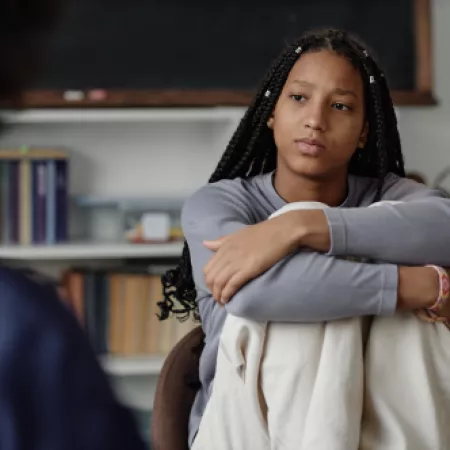A member of our community recently shared something really personal:
“My Neurologist wants to try and take me off my medication, I am really anxious about it because my seizures are under control now and the thought of having one terrifies me.”
We know how big a deal this can feel, so we reached out to our community on social media to see if others had been through something similar.
Please note: You should only stop or change medication if it's been discussed and agreed with your doctor. It's really important to take your anti-seizure medication as prescribed as this reduces the risk of harm caused by seizures. If you have any questions or concerns about your medication, please speak to your doctor.
Learn more about stopping anti-seizure medication.
Here’s what our community said:
“Hi, my daughter and I suggest choosing a stress-free time to come off meds (she has tried during school holidays) to not put any pressure on yourself for it to be a quick fix, to remember seizures are not your fault and to maybe make sure you've got a trusted person around.
To eat and sleep well is always good and remember there is always the option to go back on them. It's ok if it doesn't work, it hasn't for my daughter yet but we are still hopeful.
Be nice to yourself at that time. All the best.”
This response emphasises the value of timing, self-kindness, and having supportive people nearby. It also reminds us that it’s normal if things don’t work out the first time.
“The neurologist is trained to know what they're doing!”
Here, someone reassures that medical professionals are experienced and can be trusted to guide you through the process.
“My neurologist tried to put me on the pill to stop my seizures. I am 16 and it doesn't feel ok.”
This individual expresses uncertainty and discomfort, showing that it’s common to have mixed feelings about changes in treatment.
“We informed school; consultant said if seizures were to return it usually happens quite quickly.”
This highlights the importance of keeping others informed and notes that if seizures do come back, it typically happens soon after stopping the medication.
“My son has been med-free for over 2 years, no seizures... it was very scary, but only way to test.”
This parent describes a positive experience after stopping medication, acknowledging the initial fear but also the relief when things turn out well.
“I was medication-free for around 8 years and seizure-free for 10. If you're young, go for it!”
This person shares long-term success, especially encouraging for younger people considering this change.
“A few years back the same happened to me – however, I'm still in observation.”
Here, the journey continues with ongoing monitoring, even after stopping medication.
These responses show just how different everyone’s journey can be. Some people have been able to come off medication and stay seizure-free. Others are still figuring it out. What’s clear is that it’s okay to feel nervous, and it’s okay if things don’t go perfectly. What’s clear is that it’s natural to feel anxious, and it’s okay if things don’t go perfectly.
If you’re facing a similar decision, know that you’re not alone. There’s a whole community here who gets it. Whatever happens, be kind to yourself and take things one step at a time.
Supporting change through research and community initiatives
Initiatives like the Help fund research. Help control seizures appeal and the research led by Young Epilepsy are dedicated to making life safer, healthier, and more hopeful for people just like you.
By connecting with these efforts, you can access support, stay informed about new treatments and breakthroughs, and even find ways to share your own story. Together, we can build a future filled with greater understanding, empowerment, and opportunity for everyone affected by epilepsy.




